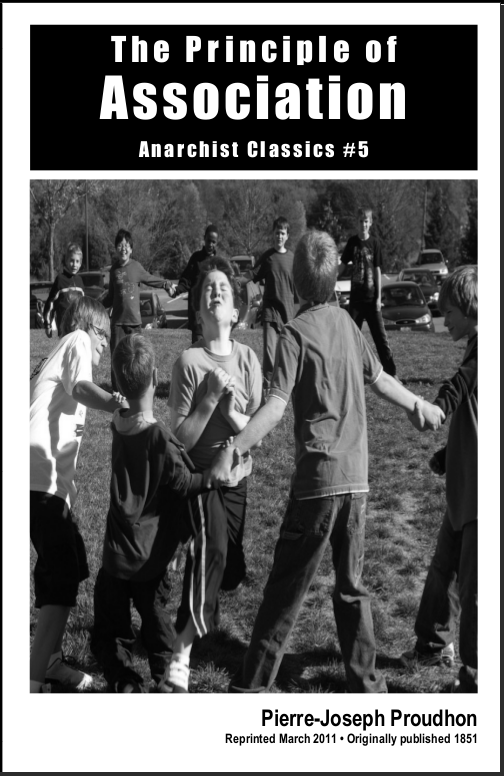C4SS has teamed up with the Distro of the Libertarian Left. The Distro produces and distribute zines and booklets on anarchism, market anarchist theory, counter-economics, and other movements for liberation. For every copy of Pierre-Joseph Proudhon’s “The Principle of Association“ that you purchase through the Distro, C4SS will receive a percentage. Support C4SS with Pierre-Joseph Proudhon’s “The Principle of Association“.
$2.00 for the first copy. $1.00 for every additional copy.
In The Principle of Association, Pierre-Joseph Proudhon —the 19th century French radical who became the first political thinker to describe himself as an “Anarchist” — takes on the “revolutionary” systems of authoritarian socialism. He questions the forms of authority, obligation, and micromanagement inherent in mass organization; he challenges the dogmatic formulas of “From each according to his ability, to each according to his needs,” and of social order based on systematic association at all costs. His revolutionary, libertarian socialist alternative: reciprocity and mutual exchange, emerging within a social space of individual initiative and spontaneous cooperation. Proudhon’s argument may be of special interest to those interested in issues raised by post-Left Anarchy or the market Anarchist tradition. From Proudhon’s 1851 masterpiece, General Idea of the Revolution in the Nineteenth Century.
Association, by itself, does not solve the revolutionary problem. Far from that, it presents itself as a problem, the solution of which implies that the associates enjoy all their independence, while preserving all the advantages of union; … the best association is one into which, thanks to a better organization, liberty enters most and devotion least.
Whoever talks of association, necessarily implies obligation, common responsibility, fusion of rights and duties in relation to outsiders…. Association formed without any outside economic consideration, or any leading interest, association for its own sake, as an act of devotion, a family tie, as it were, is an act of pure religion, a supernatural bond, without real value, a myth.








